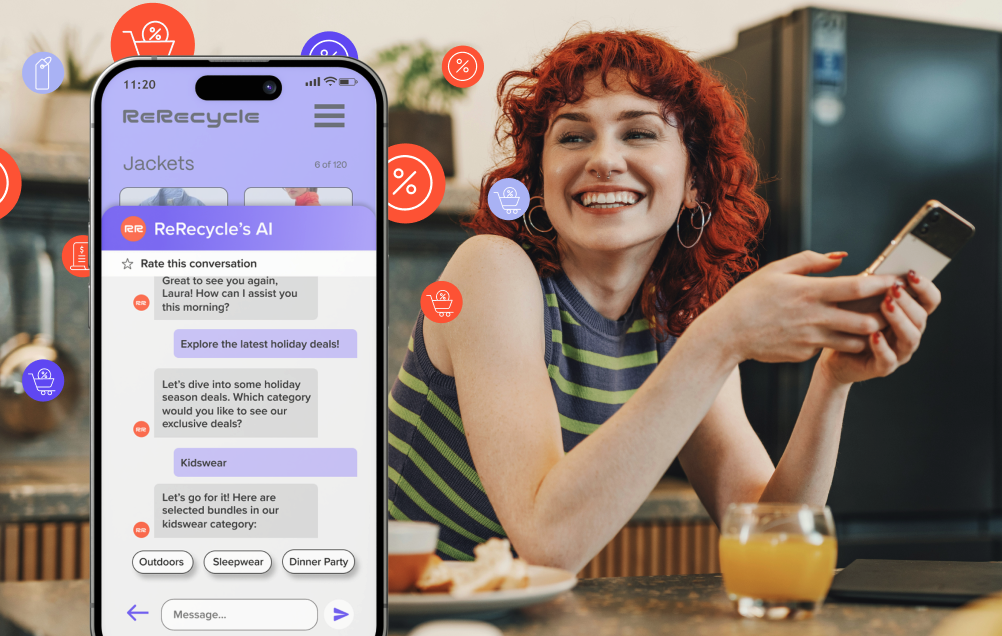Why You Should Never Leave Your Store Unattended
The difference between the experience in brick-and-mortar stores and a static, non-personalized eCommerce store can be as distinct as night and day. The experience in brick and mortar, while it takes more effort on the front end through travel, is one where you can physically see and interact with products. In comparison, an online store is limited to the product images and videos (if they have videos), limiting the senses that can experience a product. This difference is the most obvious and significant when comparing the two sales types, but this is not the only difference.

The convenience of ordering a product online is nice, especially when you can do so at all hours of the day and night, and it ends up being cheaper online in most cases. It is also generally faster to order online since there are no lines, no traffic, and no stores to traverse when looking for a particular product. This convenience is particularly enticing to younger generations, and a valuable tool as COVID-19 continues making some feel uncomfortable in a brick-and-mortar store. These reasons probably played a significant role in the increase in eCommerce sales in the last year, with the U.S. Department of Commerce Statistics reporting a 32% increase, from $156.39 billion in Q4 2019 to $206.66 billion in Q4 2020.
Sales Associates Make the Difference
Despite the substantial increase, a vast majority of retail sales in the United States continue to reside within brick-and-mortar retail stores. Even during the pandemic, “Total retail sales rose from $1.38 trillion in Q4 2019 to $1.47 trillion in Q4 2020, a 6.9% increase.” So, even with the convenience factor of online stores and the pandemic making it even more desirable, the question is: Why have the sales been lackluster compared to the brick-and-mortar stores in the United States?
The answer goes back to the experience of being in a store rather than on a website. Though the ability to physically touch an item is a significant advantage over eCommerce platforms, the real hero in the sales of a physical store is the sales associates who add to the in-person shopping experience. According to a 2016 study with Mindtree, which included 600 shoppers, the role of a sales associate is significant when it comes to purchases. They state: ” approximately 70% of shoppers interact with the sales associate during the trip when they make the purchase.” Sales associates are crucial in the shopper buying journey and help to raise the conversion rates of a physical store. They do this in a myriad of ways:
- Helping the customer to find the right product
- By recommending the right product
- By helping to push the customer to sales
- An added touch of personalization
Sales associates not only help a customer to discover and decide on a product, but they also add personalization. One-on-one conversations show the customer they are valued as a consumer in that store. Talking with Raydiant, the founder of NORA Network, Paul Greenburg, had this to say about the customer experience: “The in-store experience will continue to be deeply engaging, making that transition from a transactional environment to an experiential and entertaining experience.” These interactions are immensely helpful to a brand but detrimental if the sales associate is rude (unless you are a luxury brand, apparently).
Sales Associates Enhance Customer Experience

Sales Associates Increase Conversion Rate
A talented sales associate is part of why the conversion rate in a brick-and-mortar store averages between 20%-40%. While this may not seem high, in comparison to the average eCommerce conversion rate, it is. Currently, the average conversion rate for e-commerce websites typically ranges between 1% to a maximum of 4%, with the accurate average, according to invesp, being 2.86% in 2020. Conversion rate is a significant difference, and it shows the strength of personalization brought by sales associates in a physical store.
This level of personalization and the experience of having a sales associate help a customer can be transferred online with a personalized and smart sales assistant chatbot. Rep’s AI-powered sales assistant can increase conversion rate by offering assistance and guidance in real-time for visitors who are about to abandon the website, seem confused, or want recommendations. This powerful tool can help add the personal touch a sales associate adds to the customer journey in a physical store. This makes your customer’s experience better, which leads to higher sales.
Sign up and create an account with Rep to unlock the potential of having an on-site sales assistant selling to customers and providing them with customer service. Check it out here!
Quick Answers and FAQs
How can technologically advanced retail systems improve customer experience in unattended shops?
Maximize convenience through automation
Smart kiosks and self-checkout systems eliminate wait times and serve customers 24/7, freeing shoppers from traditional business hours. Contactless payment technologies process transactions securely and efficiently, removing friction from the purchasing journey.
❌ Don't require customers to navigate complicated menus or multi-step processes
✅ Create intuitive interfaces where customers can browse, select, and pay independently
The true value of automation isn't just operational efficiency—it's the freedom it gives customers to shop on their terms, without feeling rushed or pressured.
Leverage real-time data intelligence
IoT-connected inventory systems maintain accurate stock levels, preventing the disappointment of out-of-stock situations. Behind the scenes, sophisticated algorithms analyze customer movement patterns and purchasing behavior, continuously optimizing:
- Product placement based on browsing patterns
- Store layout efficiency to reduce confusion
- Dynamic pricing that adjusts to demand fluctuations
- Personalized recommendations that appear at decision points
When a customer picks up a product but hesitates, real-time analytics can trigger contextual information displays or complementary product suggestions—mimicking the helpful guidance a sales associate would provide.
Personalize the unattended experience
Unattended shops traditionally lack the human touch that drives conversions in traditional retail. Advanced AI systems bridge this gap by recognizing returning customers and tailoring recommendations based on purchase history.
Interactive displays compare product features when a customer is deciding between options, much like a knowledgeable sales associate would. This guided decision-making increases conversion rates and builds customer confidence in their choices.
Build trust through security and reliability
Myth: Unattended retail is impersonal and insecure
Reality: Advanced monitoring systems protect both merchandise and customer information while creating a seamless shopping experience.
Start by implementing visible security measures that reassure customers. Next, ensure consistent system uptime with redundant technologies. Later, maintain transparent communication about how customer data enhances their shopping experience.


.png)










